- Area: Siem Reap Province > Krong Siem Reab > Sangkat Kouk Chak
- | Type: Ancient Remains & Temples
To the west of Bayon, located at the functioning monastery of Preah Ang Kok Thlok is ‘Terrace S’ or the remnants thereof which now has a contemporary construction atop the ancient site. The site we see today carries on the traditional use of the ancient site, a vihara or prah vihar, that were noted as Buddhist Terraces by early research in the early 1900s. More about the Buddhist Terraces of Angkor Thom here.
You can see beautiful two statues here (replicas) including one of Hevajara, what may be Vishnu, and a naga. The site is demarcated by its original sandstone sema stones and most interestingly, on its eastern side is a large stupa which was reconstructed by a French/Khmer team back in the early 1900s. There are two more stupas located behind Preah Ngok and the remnants of those surrounding Tep Pranam.


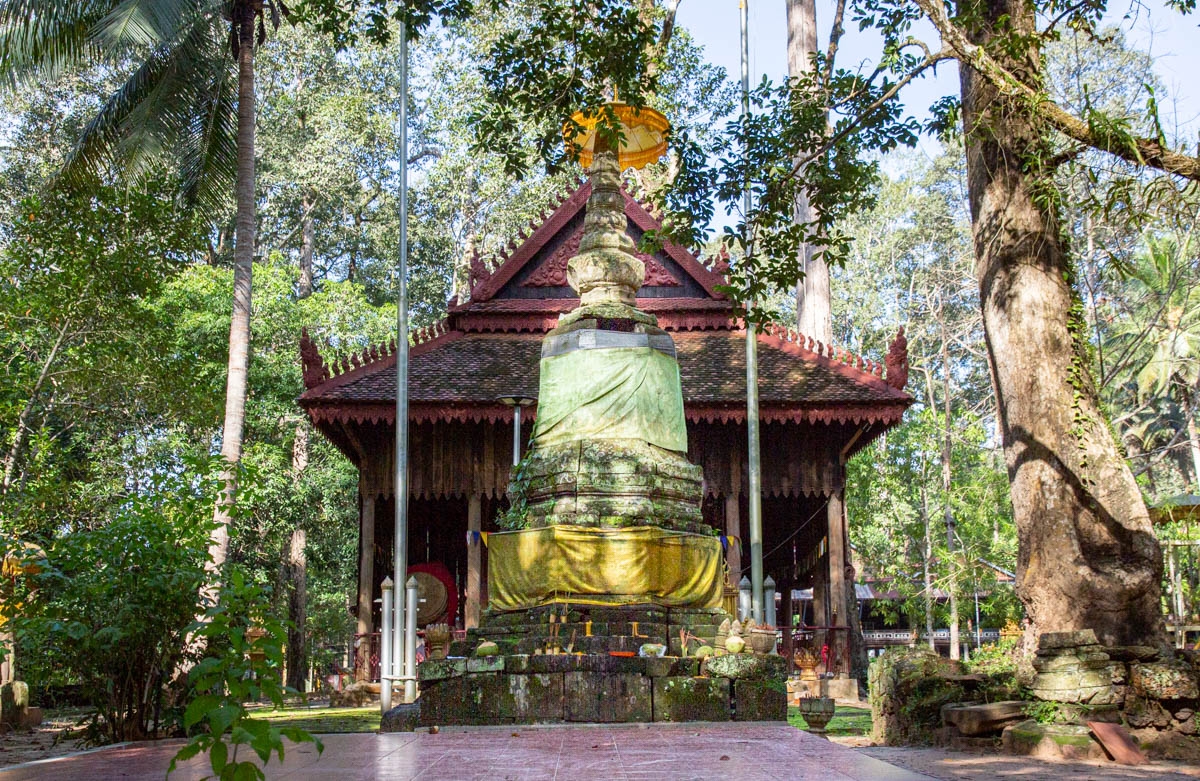
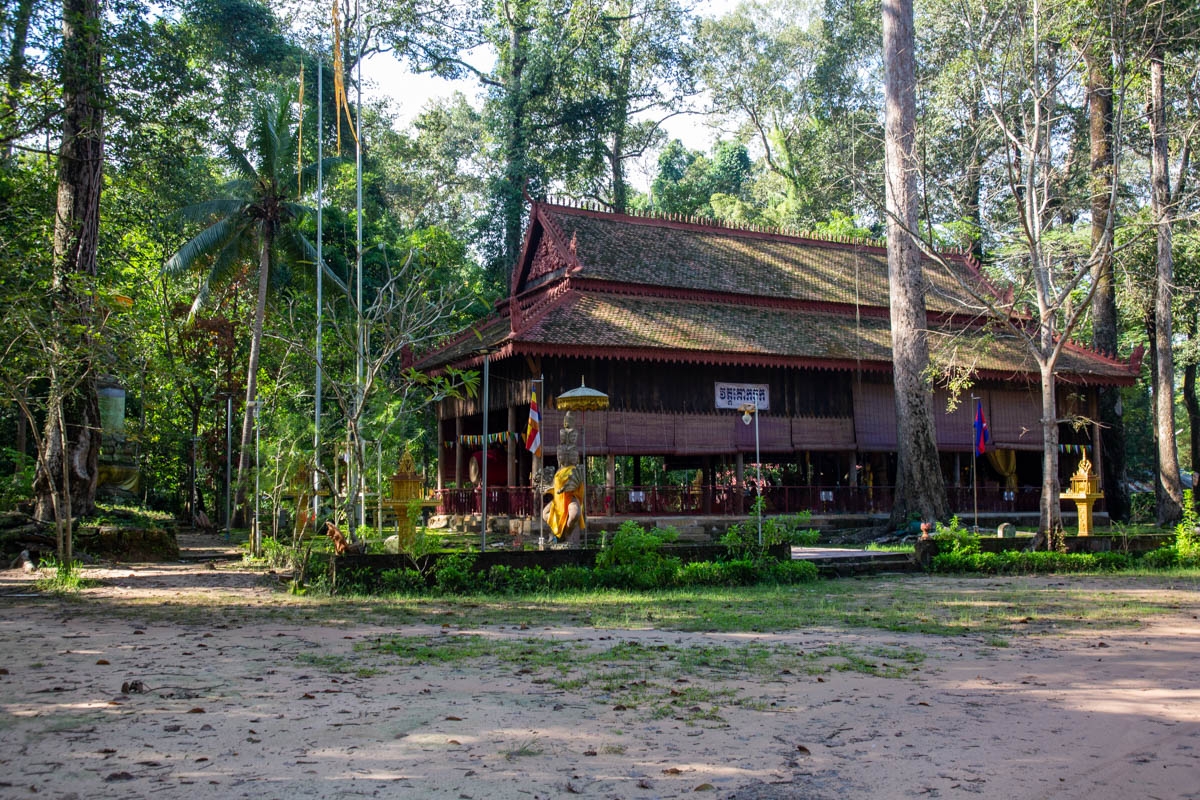
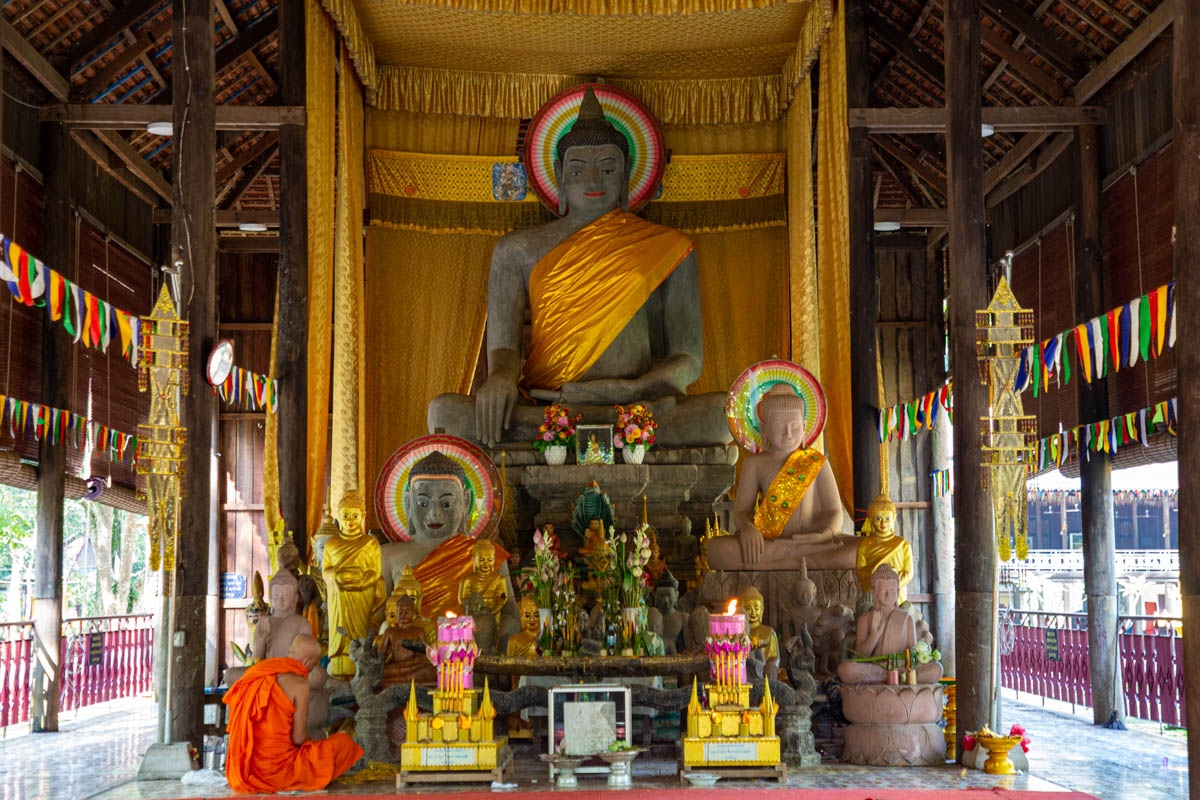

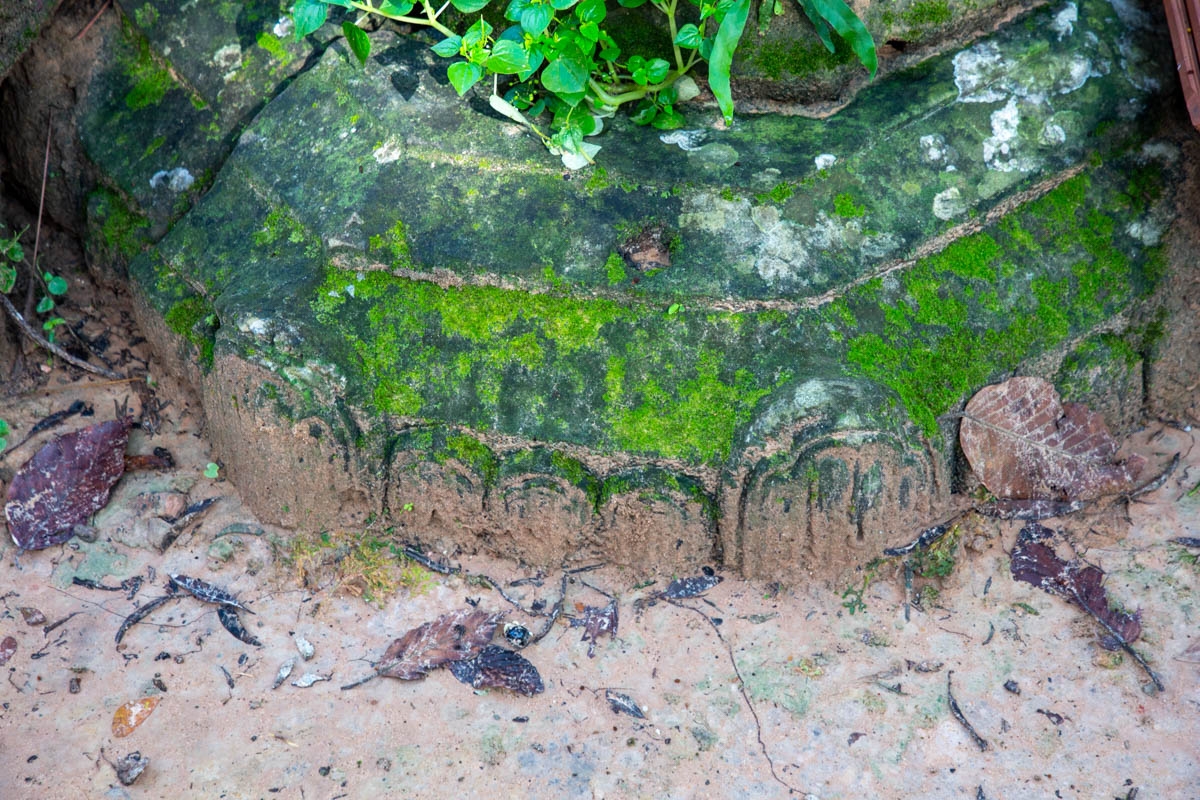


Historical Notes
Discovery in 1919
Another finally a hundred meters west-northwest of Prah Kuk Thlok (west of Bayon) shows a platform of about twenty meters by 7meters wide with setback to the east without trace of steps. Near the site of the balan a large quantity of remains of Buddhist statues of various sizes was found, but none of which could be completely reconstructed. The largest, of which there remains a lower part of the face, must have reached the size of the Buddha of Tep Pranam. About ten meters in front of this terrace, we see a masonry block of 1 m. 20 in height and about 4 meters on the side which was to support a sandstone četdei on an octagonal plan. The stones found, including the point, show that the plan, contrary to what happens most often, remains octagonal even in the highest parts.
BEFEO Chronique 1919
Discovery in 1922
While clearing the western approaches to Bayon, Mr. Marchal noted to the south that the road had to cut a lower terrace of the Buddhist building called Práh Kuk Thlok. A polygonal cedei in sandstone could be partly reconstituted with the debris found to the east of the road, was perhaps on this terrace, of which a lion still accompanies the steps.
BEFEO Chronique 1922
Analysis of the stupa by Henri Marchal in 1951
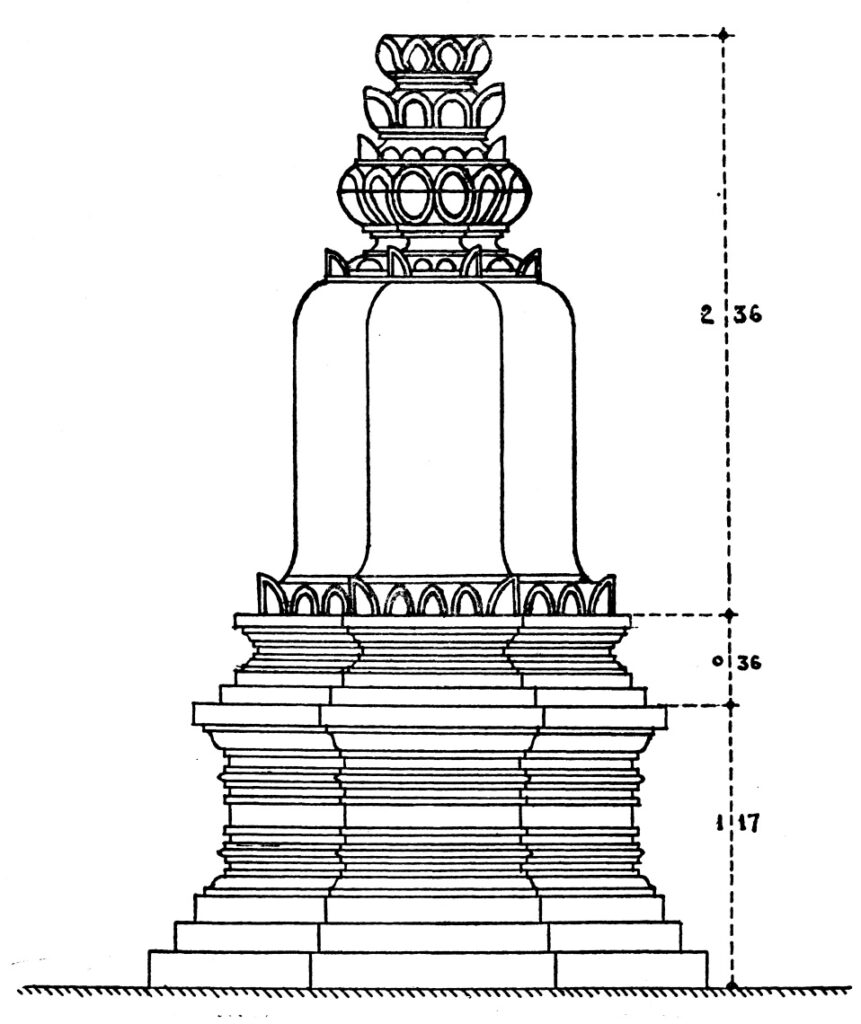
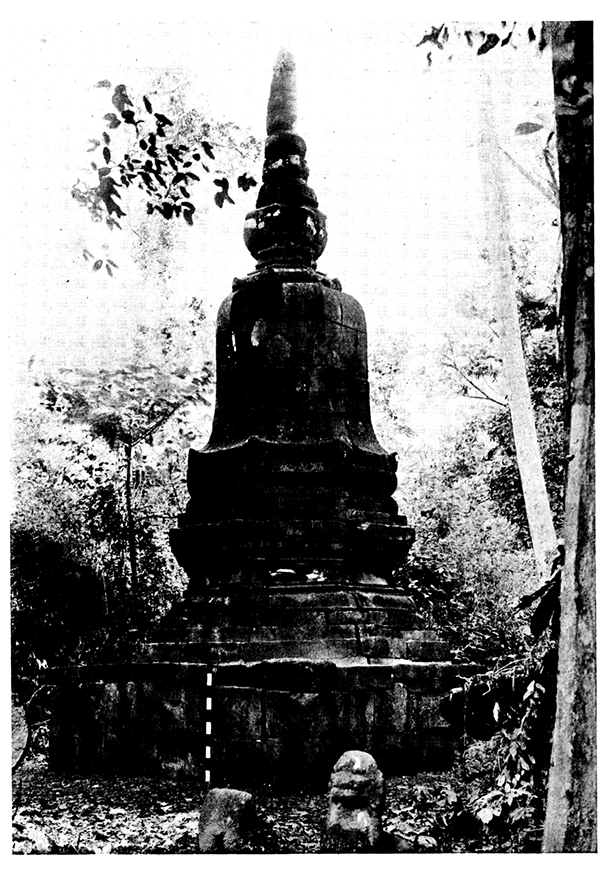
..a stupa located in the bush of Angkor Thom about 300 meters west of Bayon. The square base is in laterite, but all the rest is in sandstone blocks mixed and fitted with care.
This stupa which seems in its must have belonged to an old Buddhist site from which all the constructions, probably in light materials, would have disappeared. It gives a complete look of the Khmer stupa; massive and square base supporting an octagonal pedestal of the classic profile with opposite moldings surmounted by the body of the bell-shaped stupa finished by the point with beads, recalling the Chattravali of India
Everything in the profile of this stupa conforms to the classic molding of ancient temples, which makes me date it between the 13th and 14th centuries, because, later, the forms change, lengthen and clutter with details of Siamese origin, or even Chinese. However, in the stupa [Pl. LXX] only one element does not appear purely Khmer and could reveal a foreign influence: it is the base molding of the body of the stupa, no more straight and horizontal as in classical art, but rounded and raised in a point, as commonly found in Java, Burma and Siam.
Marchal Henri. Note sur la forme du stūpa au Cambodge. In: Bulletin de l’Ecole française d’Extrême-Orient. Tome 44 N°2,
pp. 581-590;
Inscriptions
In 1939, excavations near the terrace revealed a broken sandstone piece that was described as being the begining of an inscription (registered under K. 643) with 19 lines of text extracted in a writing style of the 10-11th century. It was noted that the writing style was identical to that seen at the Phimeanakas, and featured a commeroration on the erection of an idol, Vishnu in Yasodharaparvata. Ref: Finot Louis. Inscription de la terrasse bouddhique d’Ankor Thom. In: Bulletin de l’Ecole française d’Extrême-Orient. Tome 29, 1929. pp. 343-344.
Map
Site Info
- Site Name: Angkor Thom (Terrasse S) Khmer Name: អង្គរធំ
- Reference ID: HA14283 | Posted: January 19, 2021 | Last Update: October 12th, 2022
- Tags/Group: Angkor, Angkor Thom, Buddhist Terrace, Temples
- Location: Siem Reap Province > Krong Siem Reab > Sangkat Kouk Chak
- MoCFA ID: 4719
- IK Number: 471.19
- Inscription Number/s: K. 643
